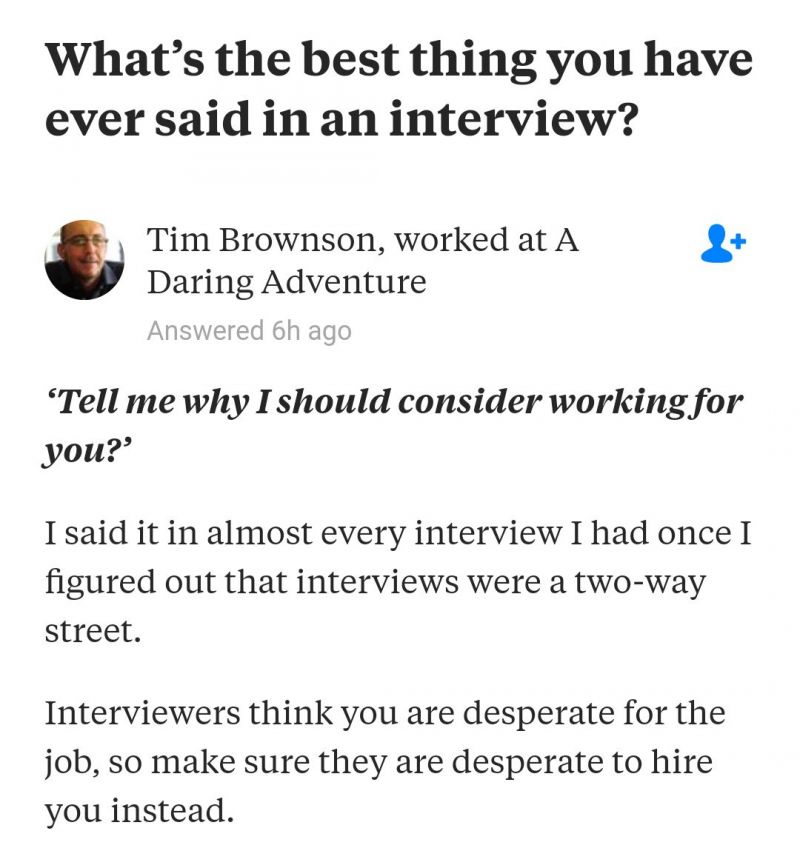Join devRant
Do all the things like
++ or -- rants, post your own rants, comment on others' rants and build your customized dev avatar
Sign Up
Pipeless API

From the creators of devRant, Pipeless lets you power real-time personalized recommendations and activity feeds using a simple API
Learn More
Related Rants

 Stackoverflow.
Stackoverflow. For those of you who are having interviews ... remember this
For those of you who are having interviews ... remember this
My vague naive extreme understanding of interview questions are on a spectrum from situation a to situation b.
But what should the industry be doing? Is the industry just going wrong blindly copying big N companies hiring process without the same rationale? (e.g. they need computer scientists able to deal with problems specific to them at their size and that often means creating new tech, unreal problem solving abilities and cuh-rayzee knowledge)
a) stupid fucking theoretical shit that some people argue you won't ever need to be doing in practice for most companies, while giving you no ability to google, leetcode hard problems kind of stuff
b) practical work similar to what you'd be doing on the job, small bugs, tasks, pair programming on site with your potential future coworkers
Lots of people hate option a because it's puzzle/problem solving that isn't always closely related to what's on the job. Whiteboarding is arguably very much a separate skill. (Arguably unless it's like a big N company where you want computer scientists to deal with specific problems that aren't seen elsewhere, and you're making new tech to deal with your specific problems.)
We could go to the extreme of Option b, but it tends to trigger people into shitfits of "NO, HOW DARE YOU MAKE ME DO REAL WORK, BUT NOT PAY ME FOR IT AT THE INTERVIEW STAGE"
That's before we get into how to execute option b whether or not it's being given as a take home assignment (which is a huge pain in the ass and time sink, among other issues) vs a few hours at the potential workplace working with some of the future potential coworkers and soaking in the work environment (you have to figure out how to take the time off then)
Is it really just poor execution overall for the wrong use cases for the majority of the industry? What should the industry be doing in which cases.
Then this is all before HR screening with shit like where they might ask for more years of swift experience than its existed.
question
interview-questions
interview